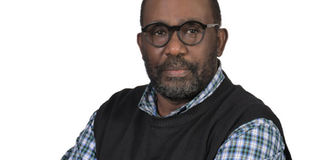Stealing elections has become very nasty work - that’s great

Author, Mr Charles Onyango-Obbo. PHOTO/COURTESY.
What you need to know:
- To a Ugandan, a lot of what happened in Tanzania is familiar in the fate Forum for Democratic Change’s Dr Kizza Besigye endured in the decades of his bruising electoral rivalry with President Yoweri Museveni.
Tanzania just had its election, which the ruling Chama Cha Mapinduzi (CCM) and incumbent President John Magufuli won with a landslide. It has always been hell for the Opposition in Tanzania, but the hurdles they faced this time went over the top.
There was mass disqualification of Opposition candidates so they couldn’t stand. The abuses were extreme, and at one point, the leading Magufuli rival, Chadema party’s Tundu Lissu, was suspended from campaigning for a week by the election commission for criticising Magufuli.
The Opposition pooh, poohed the whole election as thuggery. Now after the disputed outcome, a whole lot of Opposition politicians, including Lissu, have been arrested for calling for protests against the rigged vote. Outspoken Kenyan lawyer Ahmednasir Abdullahi, watching the election proceedings in horror like many other people, advised that the Tanzanian need to learn how to rig an election, because this was too shoddy.
To a Ugandan, a lot of what happened in Tanzania is familiar in the fate Forum for Democratic Change’s Dr Kizza Besigye endured in the decades of his bruising electoral rivalry with President Yoweri Museveni.
Recent reports said over a period of nearly 20 years, Besigye was arrested 1,023 times, imprisoned 217 times, accused of 894 offences, and never been convicted of any of them! Now we are seeing harassment of NUP’s Bobi Wine (Robert Kyagulanyi) and his supporters, arrests, confiscation of their campaign materials, and police pulling down their campaign posters and billboards and putting up President Museveni’s. There is a difference, though.
Repression of the Opposition in Uganda during elections, is not wholesale like we have just witnessed in Tanzania. In the parliamentary and lower races, by and large State machinery and the election commission, doesn’t lock out the Opposition.
In Uganda, our way is to focus on the single man at the top – Besigye, Bobi Wine – and his top lieutenants, and to smash the infrastructure built around the main Opposition presidential rival to Museveni.
In Tanzania’s case, this is a new low. During the time of Jakaya Kikwete, with all the criticism he faced, the Opposition somehow thrived and dramatically expanded their success. History has a wicked sense of humour; the Kikwete years might go down as the golden age of democracy in Tanzania!
In common, though, what is happening in Tanzania and Uganda, with the NRM bludgeoning a new party like NUP and a young relative newcomer to politics like Bobi Wine, reveal long-ruling political parties (CCM has been in power for 56 years, including the first few years after Tanzania’s Independence when it was TANU), who have forgotten how to win elections without going native and resorting to extreme measures against the opposition.
Both parties draw a large part of their legitimacy from the founding period, and their response to the issues of their first years. CCM (as TANU) brought Independence, and over the Nyerere years, undertook a largely success nation-building and national unity project. The post-Nyerere and post-Cold War years have been bumpy, as it has struggled to fashion a political and economic order that works for most.
Museveni and the NRM ended some of Uganda’s worst nightmares, and lawlessness. They rebuilt the country, and significantly expanded the economy. And then stalled. Both CCM and NRM are facing an exploding youthful population, that is not wedded to their historical glories, and want a new dispensation - which the ruling parties don’t have a creative answer to. Fearing this ever-growing youthful vote is defecting, and unable to offer them sufficient social bribes, they have to resort to ever more extreme ways to win power.
But in the travesty, there is hope. Thirty-five years ago, there would have been no Opposition, and they would have ruled as single parties. Today, it is no longer possible not to have a multiparty system. Jail the Opposition, torture them, but it’s tough to govern as a one-party dictatorship any more. Rob the Opposition at the ballot, disqualify them, and all other shenanigans, but it is impossible not to have elections any more, even bad ones.
There is always the exception, of course, as in Eritrea, which doesn’t bother with all the nonsense listed above, but the social formations and changes in the rest of East Africa, and Africa, of the last 35 years mean you have to hold elections, and have an opposition of sorts. So, that is “progress”.
However, it also means the old easy ways, like snatching ballot boxes and throwing them in a river, then announcing results that haven’t been counted, are no longer practical. These days you have to count the vote, and then change the count. There is some joy in knowing that strongmen and anti-democratic ruling parties, have to work overtime, and get really down and very dirty to win.
Mr Onyango-Obbo is a journalist,
writer and curator of the “Wall of Great Africans”. Twitter@cobbo3





